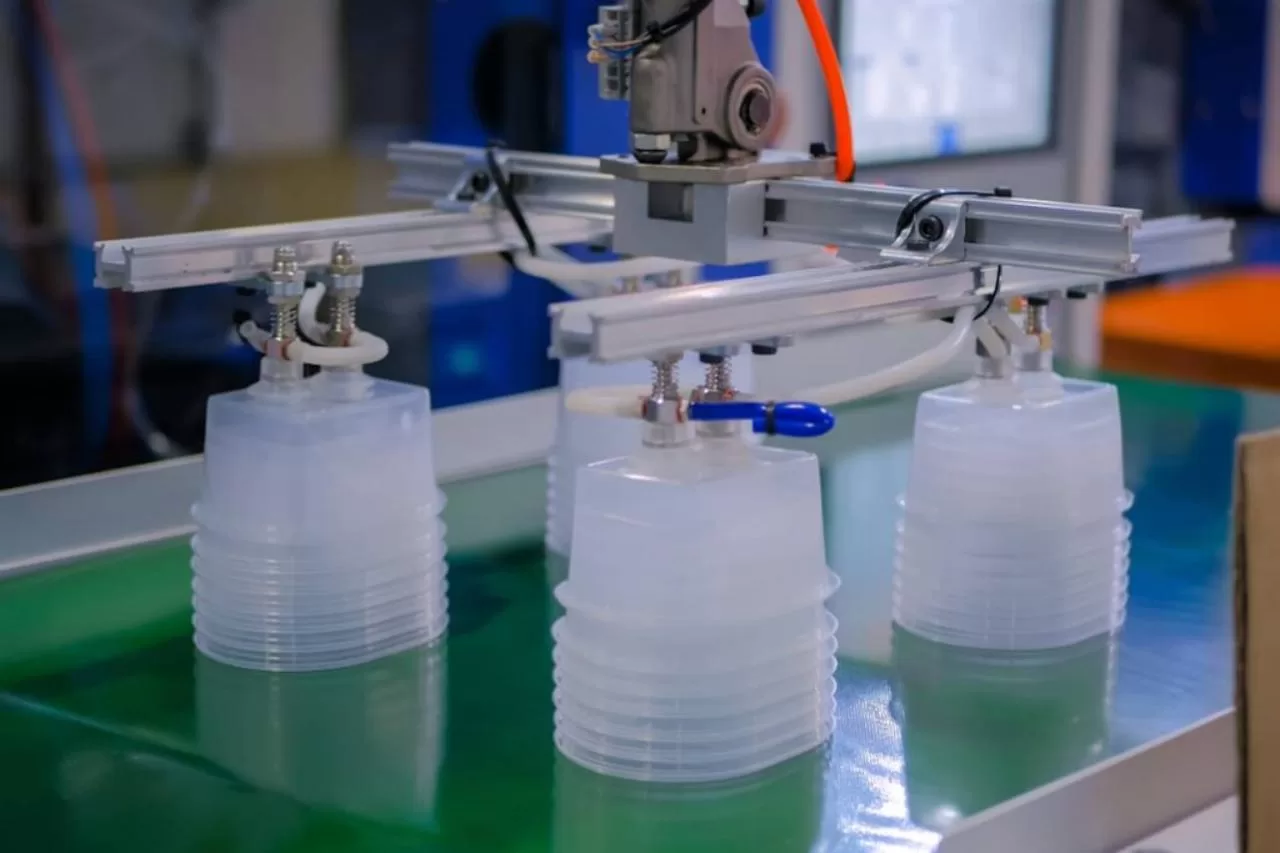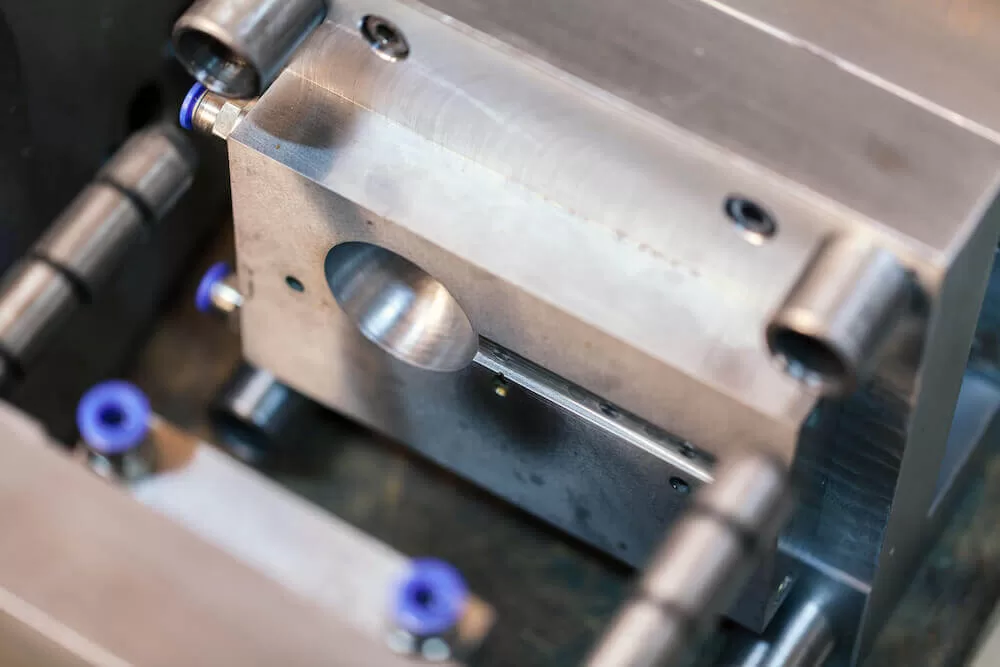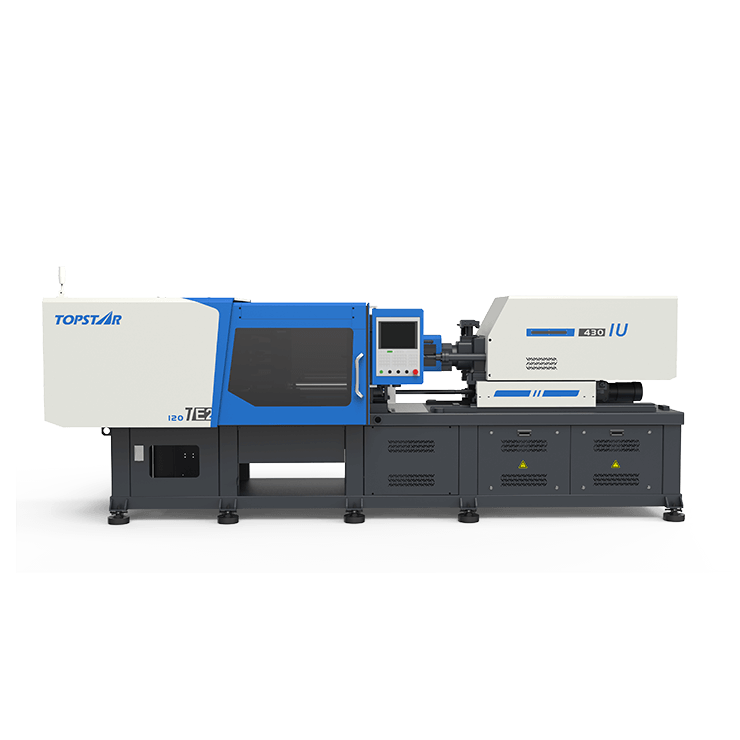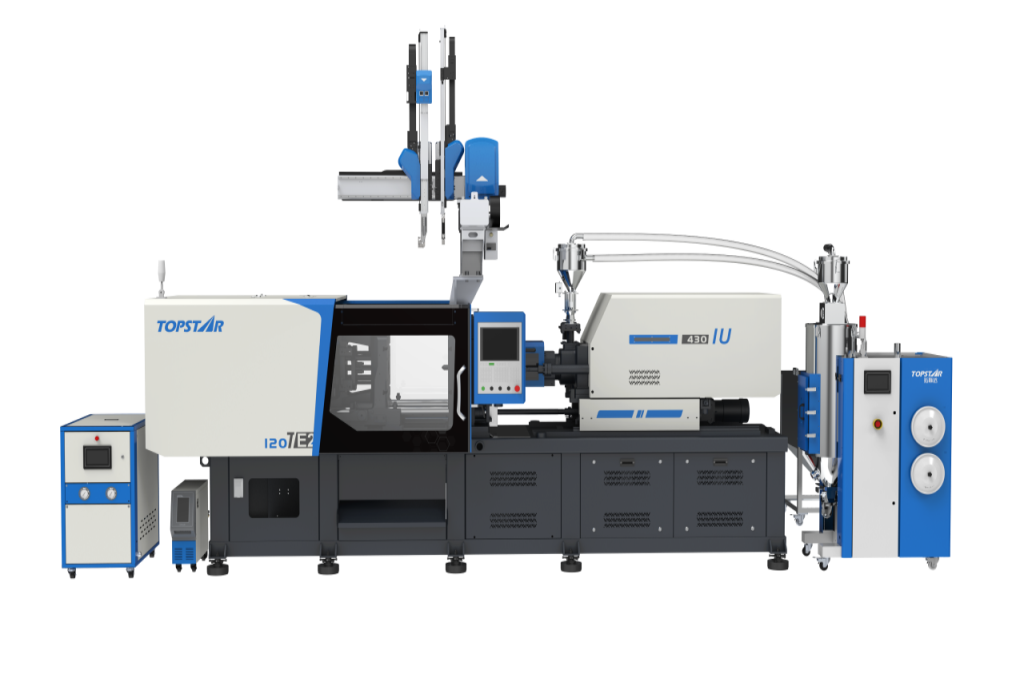How to ensure the consistency of injection molding process?
2025/08/13 By Topstar

Maintaining consistent injection molding processes requires precise control of various factors, including mold temperature, injection molding machine settings, and process parameters. First, ensure precise and stable mold temperature using a mold temperature controller. Furthermore, core injection molding machines utilize fully electric machines with intelligent electric drive controls to reduce communication delays during high-speed cycles. These machines optimize position, speed, and pressure control, further enhancing process stability. Furthermore, digital control allows for precise monitoring and adjustment of key parameters such as injection speed, cycle time, screw speed, and back pressure, improving production efficiency and ensuring a stable injection molding process.
Mold Temperature Control: The Foundation of Injection Molding Process Consistency
One of the primary factors affecting the consistency of the injection molding process is mould temperature. Precise mold temperature control is crucial throughout the entire production process to ensure uniform cooling of parts and avoid defects such as warping, cracking, and uneven shrinkage. Mold temperature controllers maintain optimal temperatures throughout the entire cycle, ensuring smooth material flow and uniform mold filling. Topstar’s mold temperature controllers support adaptive control and fine-tuning, with real-time monitoring, adjusting mold temperature based on material properties and environmental conditions. Maintaining a constant mold temperature throughout the production process helps maintain consistent molded product shape, size, and quality, thereby reducing scrap and improving production efficiency. Stable mold temperature reduces the impact of minor deviations and improves overall process stability.

The Role of All Electric Injection Molding Machines in Injection Molding Process Stability
Another key factor in ensuring consistency in the injection molding process lies in the choice of the injection moulding machine. All electric injection molding machines utilize servo-driven motors, which offer faster response times and more precise control than hydraulic presses. All electric machines enable precise control of key parameters, including injection speed, pressure, and position. This precise control can shorten injection cycle times, reduce defects, and improve overall process stability. According to industry reports, using all-electric machines can reduce injection cycle times by up to 10% while maintaining consistent part quality. Furthermore, equipped with intelligent drives, these machines reduce communication delays during high-speed cycles, ensuring real-time adjustments. The combination of these intelligent drives and intelligent control systems makes all electric injection molding machine the optimal choice for applications requiring the highest levels of precision and consistent molding results.

Digital Control Systems Improve Process Precision
Digital control systems enable more consistent production during the injection moulding process by precisely monitoring and adjusting key process parameters, including injection speed, screw speed, back pressure, and cycle time. At the same time,digital control enables operators to set and store specific values for each parameter, reducing the risk of human error and ensuring consistent processes across multiple production cycles. According to a survey, users of injection molding machines using digital control systems reported a 10% increase in operational efficiency due to improved process consistency. Real-time data analysis and feedback allow for instant adjustments, helping to maintain optimal production conditions. The ability to automatically adjust parameters within each cycle further enhances consistency, ensuring a stable molding process even with variations in variables such as material temperature and viscosity. This precision directly improves part quality and ensures uninterrupted and efficient production.

Adaptive Control for Different Materials and Geometries
Maintaining a consistent injection molding process is crucial even when working with diverse materials and part geometries. Not all materials behave equally under high temperatures and pressures, and different geometries may require different injection molding parameters for optimal results. Therefore, injection molding machines equipped with adaptive control systems can automatically adjust injection speed, pressure, and temperature settings based on the specific material and geometry being processed. This ensures that every part is produced consistently and precisely. Studies have shown that adaptive control can increase production yield by 20% by adapting to a variety of materials and geometries with minimal intervention. Automatically adjusting these parameters in real time reduces the need for manual intervention, improves efficiency, and ensures consistent injection molding processes across applications.
Optimizing Cycle Time for Consistency and Efficiency
Optimizing cycle time in injection molding without compromising part quality requires precise control of every molding process, from injection to cooling to ejection. Shortening cycle time can increase output and minimize waste, but this must be balanced with maintaining the required part quality. All-electric injection molding machines, coupled with digital controls, help optimize cycle time, ensuring that every stage of the process is completed as efficiently as possible. According to a report by the Injection Molding Society of America, optimizing cycle time can increase production capacity by 25% while maintaining high quality standards. These systems tightly control and optimize every step of the cycle for maximum efficiency. As a result, manufacturers can achieve faster production while maintaining high quality and process consistency.
Achieving Process Consistency
Ensuring consistent injection molding processes requires a combination of precision, real-time monitoring, adaptive control, and intelligent injection molding equipment. Mold temperature control, fully electric injection molding machines, and digital controls play a core role in achieving stable and reliable production operations. By integrating these technologies, plastics manufacturers can ensure efficient and consistent injection molding processes.
TRENDING POSTS
- TOPSTAR Global Open Day 2025: Humanoid Robot Debuts, Pioneering a New Decade of Intelligent Manufacturing 2025/08/13
- Topstar Showcases TE II Electric Injection Molding Machines at InterPlas Thailand 2025 2025/08/13
- Topstar Expands Its Ecosystem Partnerships to Drive Smart Manufacturing Innovation 2025/08/13
- What factors can cause delays in the injection molding process of plastic molding machine? 2025/08/13
HOT TOPIC
- .ervo motor-driven linear robots
- •
- 1.0 guangdong topstar technology co. ltd
- 1.0 topstar china
- 1.0 topstar robot
- 11
- 160℃ mold temperature controller
- 170 ton injection molding machine
- 2
- 21
- 220-ton injection molding machine
- 23
- 260 ton injection molding machine
- 3 axis robot
- 3 axis robots
- 3 in 1 Compact Dehumidifying Dryer
- 3-axis robot
- 3-axis robots
- 39
- 41
- 460T injection molding machine
- 5-axis CNC machine
- 62
- 90 ton injection molding machine
- accuracy
- Air Chillers
- all electric injection molding machine
- all electric injection molding machines
- all-electric injection molding machine
- All-electric injection molding machines
- and overall production quality. Therefore
- AP-RubberPlas
- auto loader
- automated injection molding machine
- Automation changed engineering
- automation of injection molding robots
- automotive parts injection molding
- Auxiliary Equipment
- auxiliary machine
- Bench Injection Molding Machine
- Cabinet dryer manufacturers
- Cabinet dryers
- chiller
- CNC Drilling Machine
- CNC Drilling Machines
- cnc engraving machine manufacturer
- cnc laser cutting machine manufacturer
- CNC machine
- CNC Machine Center
- CNC Machine for Sale
- CNC Machine Manufacturing
- CNC Machine Tool
- CNC machine tool product
- CNC Machining Center
- CNC wood carving machine
- Cooling system
- Cross-Walking Single Axis Servo Cylinder Robot
- Cross-Walking Single-Axis Servo Cylinder Robot
- Cross-Walking Three-Axis/Five-Axis Servo Driven Robot
- cross-walking three-axis/five-axis servo-driven robot
- Dehumidifier Dryer
- Dehumidifying Dryer
- delta parallel robot
- Desktop Injection Molding Machine
- Desktop injection molding machines
- Desktop Molding Machine
- desktop plastic injection machine
- Desktop Plastic Injection Molding Machine
- Digital Transformation
- direct clamp injection molding machine
- Direct clamp injection molding machines
- Dosing & mixing system
- Drilling Centers
- Drying and dehumidification system
- drying and dehumidifying equipment
- Drying and Dehumidifying System
- drying system
- effective and efficient. Cabinet dryers are also used in other industries where large quantities of material need to be dried
- efficient injection molding machine
- elbow hydraulic injection molding machines
- electric injection molding machine
- electric injection molding machines
- energy-efficient injection molding robot
- energy-efficient water chiller
- energy-efficient water chillers
- energy-saving injection molding machine
- etc. Among injection molding robots
- exhibition
- features of CNC machine
- Feeding And Conveying System
- Five Axis Machine Center
- Flexible Production Line
- Fully automatic injection molding machine
- Gathering Topstar
- giant injection molding machine
- GMU-600 5-Axis Machining Center
- Granulating & Recycling System
- granulator machine
- gravimetric blender
- Heavy duty injection molding machine
- High-precision electric molding machines
- high-precision plastic molding machines
- high-speed all electric injection molding machine
- high-speed electric injection molding machine
- High-Speed Packaging Injection Molding
- Honeycomb rotor dehumidifier
- Hopper Dryers
- horizontal injection molding machine
- Horizontal Injection Molding Machines
- Horizontal Injection Moulding Machine
- Horizontal Mixer manufacturer
- How The CNC Machine Works
- hybrid injection molding machine
- hydraulic injection molding machine
- Hydraulic Injection Molding Machines
- in this article
- Industrial AI
- Industrial Automation
- Industrial robot
- Industrial Robot Chinese brand
- industrial robot parts
- industrial robot supplier
- Industrial robots
- Industry Chain
- Injection Manipulator
- injection manipulator robot
- injection mold machines
- Injection molding
- Injection molding automation
- Injection Molding Automation Solution
- injection molding dryer
- Injection molding equipment
- injection molding hopper dryer
- Injection molding machine
- injection molding machine brand
- Injection Molding Machine Factory
- Injection Molding Machine Manufacture
- Injection molding machine manufacturer
- injection molding machine manufacturers
- Injection molding machine procurement
- injection molding machine robotic arm
- injection molding machine with a robot
- Injection molding machines
- injection molding material dehumidifying
- injection molding plant
- injection molding process
- Injection Molding Robot
- injection molding robot arm
- Injection molding robot automation
- Injection molding robotic arm
- injection molding robots
- Injection moulding machine
- injection moulding machines
- Injection Moulding Robots
- Injection Robot
- Injection robot arm
- Injection robot manufacturer
- Injection robot wholesale
- injection robots
- Intelligent Factory
- intelligent injection molding machines
- Intelligent Manufacturing
- intelligent mold temperature
- intelligent mold temperature controller
- Intelligent mould temperature controller
- InterPlas Thailand 2025
- Introducing Injection Robot
- It is the best choice for drying large quantities of material at once. Cabinetmakers use these machines because they are fast
- Large flow water type mold temperature controller
- large injection molding machine
- large injection molding machines
- Learn what industrial automation and robotics is
- linear robot
- linear robots
- low speed sound-proof granulator
- machine plastic molding
- make sure to add some! Improvements (2) Keyphrase in introduction: Your keyphrase or its synonyms appear in the first paragraph of the copy
- manipulator machine
- manufacturing
- Manufacturing Innovation
- medical grade injection molding machines
- Medical Injection Molding
- medical injection molding machine
- medical injection molding machines
- micro injection molding machine
- middle speed granulator
- Mini CNC machine manufacturers.
- mobile cover making machine
- Mold Temperature Control System
- mold temperature controller
- mold temperature controllers
- molding machine
- molding material Dehumidifying System
- mould temperature control system
- mould temperature controller
- mould temperature controllers
- New electric injection molding machine
- nitrogen dryer manufacturer
- nitrogen dryer system manufacturer
- Oil type mold temperature controller
- Oil type mold temperature controllers
- open day
- optical component injection molding
- Outbound links: No outbound links appear in this page. Add some! Images: No images appear on this page. Add some! Internal links: No internal links appear in this page
- packaging injection molding
- Packaging Solutions
- PET Preform injection molding
- phone case maker machine
- phone case making machine
- phone cover making machine
- PID Control Mold Temperature Controller
- plastic auto loader
- plastic bottle making machine
- plastic bottle manufacturing
- plastic bucket making machine
- plastic bucket manufacturing
- Plastic chair making machine
- plastic dryer for injection molding
- plastic forming equipment
- Plastic Granulators
- plastic hopper dryer
- plastic injection machine
- plastic injection machines
- plastic injection molding
- Plastic injection molding equipment
- Plastic injection molding machine
- Plastic Injection Molding Machines
- plastic injection moulding machine
- plastic injection moulding machines
- plastic injection robot
- plastic molding
- Plastic Molding Industry
- Plastic Molding machine
- plastic molding machine 1
- Plastic Molding Machines
- plastic molding press
- plastic moulding machine
- plastic phone case making machine
- plastic-molding machine
- powerful granulator
- Powerful Type Sound-Proof Granulator
- precision injection molding
- precision injection molding machines
- production of plastic seats
- pure water mould temperature controller
- Robot injection molding
- robot injection molding machine
- robot manufacturing companies
- Robotic arm for injection molding machine
- robotic injection molding machines
- robotics in injection molding
- SCARA robot
- SCARA robots
- Screw dosers
- Service-oriented manufacturing
- Servo Cylinder Robot
- servo driven robot
- Servo Driven Robots
- servo injection molding machine
- servo injection robots
- servo motor-driven linear robots
- servo-driven 3-axis robot
- Servo-driven injection molding machine
- Servo-Driven Robot
- Setup of injection machine
- Silicone Injection Molding Machine
- six-axis industrial robot
- Smart Manufacturing
- soundproof granulator
- Stainless Hopper Dryer
- Stainless Hopper Dryers
- star club
- swing arm robot
- take-out robot
- take-out robots
- Thailand 4.0
- the choice between servo-driven robots and hydraulic robots will have a certain impact on efficiency
- the most popular injection molding machine
- the type of injection molding robot
- TIC2000 Control System
- TMII injection molding machine
- toggle clamp injection molding machine
- Toggle Hydraulic Injection Molding Machines
- toggle injection molding machine
- Top 10 brands of injection robots
- Topstar
- Topstar Electric Injection Molding Machine InterPlas Thailand 2025 Smart Manufacturing Thailand 4.0
- Topstar Engineering
- Topstar Industrial Robots
- Topstar injection molding intelligent
- Topstar Scara Robots
- Useful Injection molding machine
- Vertical machining centers
- volumetric type blender
- water chiller
- water chillers
- water distributor
- water type mold temperature controller
- Water Type MoldTemperature Controller
- Water-Type Mould Temperature Controllers
- We often face choices when performing injection molding. We will choose the type of injection molding machine
- wholesale of injection molding machines
- x carve CNC
- 热门查询 点击次数 展示 排名 topstar
